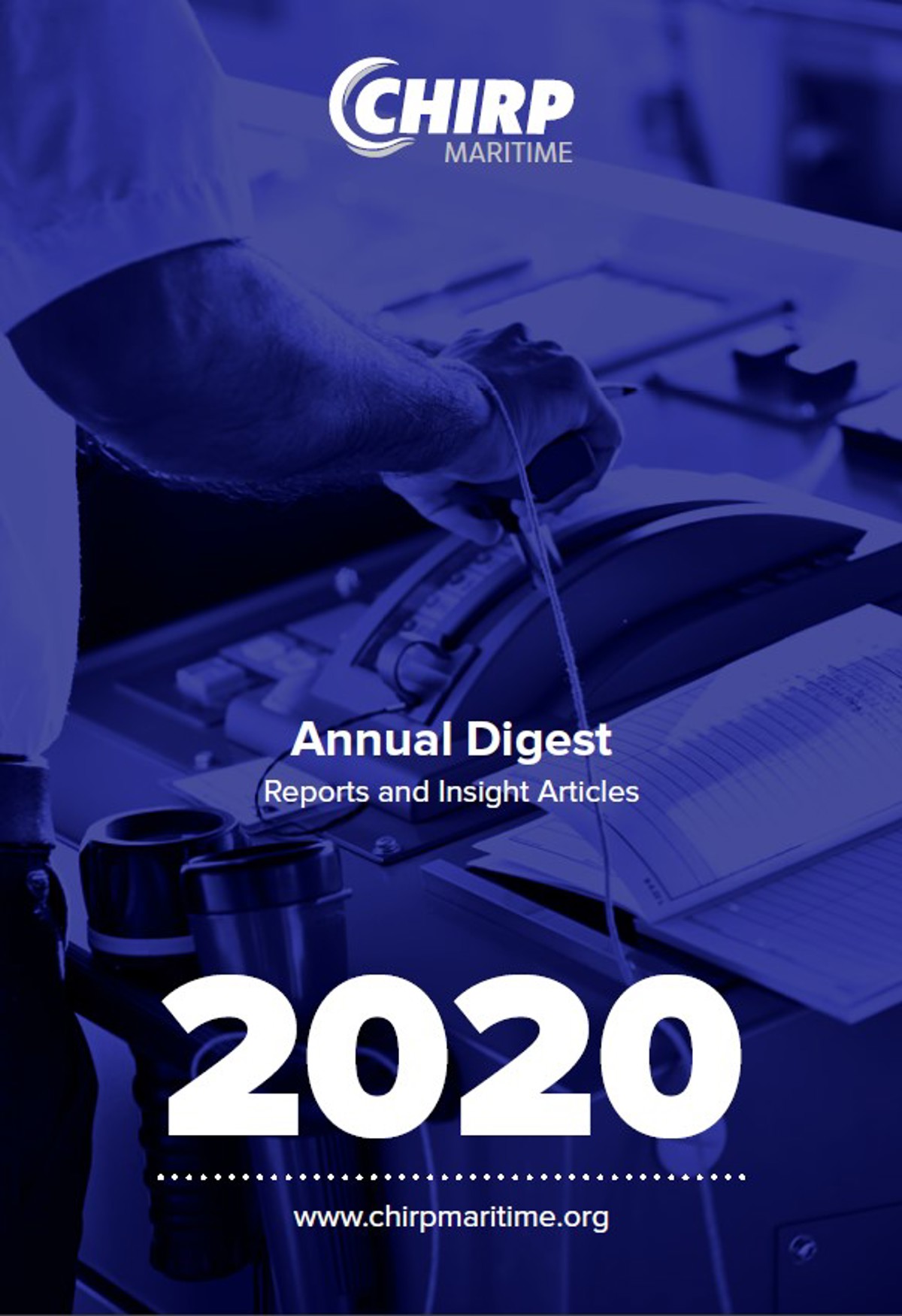CHIRP Maritime – Annual digest for 2020
- Safety Flash
- Published on 6 May 2021
- Generated on 25 February 2026
- IMCA SF 13/21
- 2 minute read
CHIRP stands for Confidential Human Factors Incident Reporting Programme. One of the aims of CHIRP is to contribute to the enhancement of maritime safety worldwide, by providing a totally independent confidential (not anonymous) reporting system for all individuals employed in or associated with these industries.
CHIRP welcomes safety-related reports from people in the international maritime sector, including the shipping industry, fishing industry and leisure users. Reporters’ identities are kept confidential.
The information provided is made available, with the approval of the reporter and in a disidentified form to those who can take action to remedy the problem.
Important information gained through reports; after being disidentified, is also made as widely available as possible through appropriate publication with the aim of improving safety standards.
This then, is CHIRP Maritime: https://www.chirpmaritime.org/

CHIRP Maritime has published its Annual Digest 2020.
It is a flagship publication and contains all the published reports of the previous 12 months as well as various technical articles.
This year, amongst these articles is a paper by CHIRP member Dr.Clare Pekcan “Seafarer well-being during the COVID-19 pandemic” highlighting the psychological impact on seafarer’s trapped at sea unable to return home at the end of their tour of duty.
The annual digest has headings as follows:
- Health and seafarer welfare
- Fishing, tugs, yachting and recreation
- Engineering, technical, environment and regulation
- Deck safety, deck operations, and cargo operations
- Collision regulations and navigation
- Safety culture
- Pilot boarding and pilotage.
The CHIRP Maritime Annual Digest is available here.
IMCA Safety Flashes summarise key safety matters and incidents, allowing lessons to be more easily learnt for the benefit of the entire offshore industry.
The effectiveness of the IMCA Safety Flash system depends on the industry sharing information and so avoiding repeat incidents. Incidents are classified according to IOGP's Life Saving Rules.
All information is anonymised or sanitised, as appropriate, and warnings for graphic content included where possible.
IMCA makes every effort to ensure both the accuracy and reliability of the information shared, but is not be liable for any guidance and/or recommendation and/or statement herein contained.
The information contained in this document does not fulfil or replace any individual's or Member's legal, regulatory or other duties or obligations in respect of their operations. Individuals and Members remain solely responsible for the safe, lawful and proper conduct of their operations.
Share your safety incidents with IMCA online. Sign-up to receive Safety Flashes straight to your email.